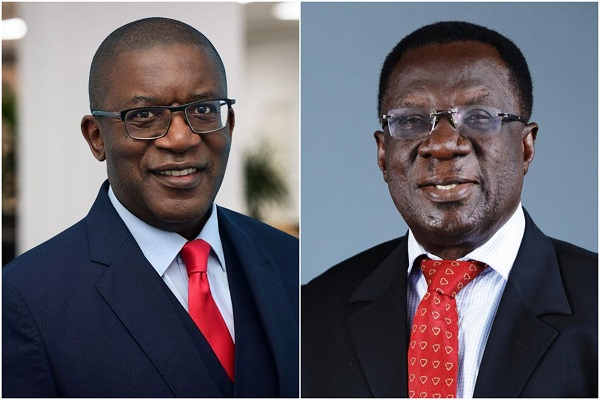Former Minister of Education, Professor Christopher Ameyaw-Akumfi, and former Chief Executive Officer of the Ghana Infrastructure Investment Fund (GIIF), Solomon Asamoah, have been hauled before the Accra High Court over their alleged involvement in a GH¢2 million Sky Train contract scandal.
Both men have pleaded not guilty to six counts, including willful breach of procurement laws, abuse of public office, and causing financial loss to the state. The charges relate to their roles in the controversial Sky Train project — a transport initiative that was expected to transform urban mobility in Accra but never materialised.
According to the prosecution, the accused persons were instrumental in the approval and disbursement of GH¢2 million in 2019 to a foreign company purportedly for feasibility studies and preparatory work on the Sky Train project. The Attorney General’s Department contends that the transaction did not follow proper procurement procedures and lacked competitive bidding.
Prosecutors allege that the two men authorised payments without the necessary due diligence, resulting in financial losses to the state. The money was reportedly disbursed even though feasibility works were incomplete and contractual obligations had not been met.
During their first court appearance, both Professor Ameyaw-Akumfi and Solomon Asamoah denied any wrongdoing. Their legal teams insisted that the payments were legitimate and made in accordance with government directives aimed at fast-tracking infrastructure development. The court granted them bail with conditions that restrict international travel and require them to attend all future hearings.
The case has sparked renewed public interest in Ghana’s Sky Train project, which was launched with great optimism in 2019 following a high-profile signing ceremony at the Africa Investment Forum in South Africa. The project was touted as a public-private partnership meant to introduce modern light rail transport in Accra. However, years later, the project remains stalled, with no visible progress on the ground.
Civil society groups and anti-corruption campaigners have welcomed the prosecution, describing it as a crucial test of the government’s commitment to accountability in large-scale infrastructure contracts. They argue that the case could set an important precedent for how Ghana handles potential financial mismanagement in public projects.
The trial continues as the court prepares to hear substantive arguments from both sides in the coming weeks.
